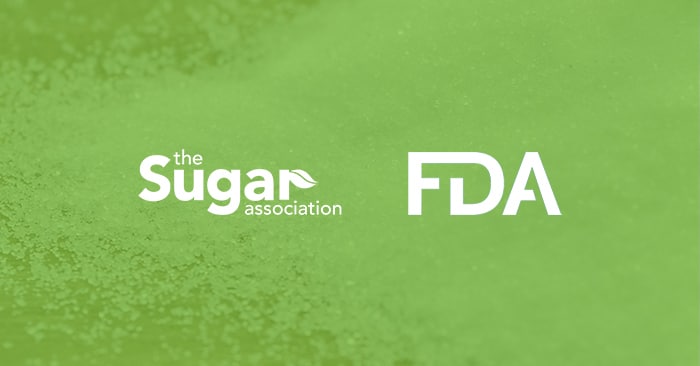Industry group the Sugar Association wants the Food and Drug Administration (FDA) to issue stricter labeling guidance on alternative sweeteners in order “to stop misleading claims about added sugars content.” But other industry stakeholders argue that product labels are transparent enough, and consumers aren’t confused or concerned. The opposition instead chalks it up as an attempt by the sugar industry to regain market share.
In the petition sent Wednesday, the Sugar Association said brands listing ‘no,’ ‘zero,’ or ‘reduced’ sugar, but including “high-intensity sweeteners, non-nutritive sweeteners, sugar alcohols and novel substances,” violate the Food, Drug and Cosmetic Act (FD&C Act), which prohibits labeling that is “false or misleading in any particular.”
Moving forward, the petition says, brands should be required to identify these “unfamiliar substances” both in the ingredient list and more prominently on packaging. Specifically, the group requests that ‘no,’ ‘zero’ or ‘reduced’ sugar claims also include the sweetener’s name, and that products typically consumed by children list both the sweetener and amount on the front of the pack, claiming it’s unclear how consuming these ingredients will affect children.
“This serves as an easy way for parents to quickly find this information that we know they want,” Courtney Gaine, CEO of the Sugar Association, said.
The petition points to Quest Bar as an example, which despite listing 1 gram of sugar on the front of pack, contains four alternative sweeteners, including allulose — which the Center for Science in the Public Interest (CSPI) has found can induce gastrointestinal distress. The FDA does not require listing allulose under total and added sugars. The Association also pointed to beverage brand Hapi water, which uses erythritol and Stevia leaf extract, as an example of a label that contained misleading marketing statements. The brand did not respond to a request for comment.
“Such examples abound throughout the marketplace and must be promptly halted,” the report notes.
The Sugar Association backed up its calls for labeling reform with research it conducted with 1,002 consumers last month. According to the poll, “many” shoppers want to know more about added sugars as well as specific alternative sweeteners. At the same time, 80% said they were “very” or “somewhat” confident in identifying alternative sweeteners, but only 37% correctly did so while looking at current product packaging.
In an email, the FDA said it will review the petition.
Michael I. Goran, a professor of pediatrics at Children’s Hospital of Los Angeles, tweeted that the petition is a “good development.” It comes at a time when brands are increasingly using alternative sweeteners. Food products with at least one alternative sweetener have tripled in the last five years, with 100% growth in new product launches from 2016 to 2018, according to the petition, which says manufacturers are under “increasing pressure to lower sugar content.” At the same time, the market for low-sugar, ketogenic products has taken off; data firm Mordor Intelligence predicts the keto market will reach a compound annual growth rate (CAGR) of 5.3% by 2025.
Industry group the Calorie Control Council, whose members include alternative sugar producers Ingredion, PureCircle and Tate & Lyle, said in a statement it will conduct “a thorough review” of the Sugar Association’s petition, and that “low- and no- calorie sweeteners are a safe and effective alternative to added sugars.”
“As one of the many tools to combat obesity and diabetes, low- and no- calorie sweeteners help consumers reduce added sugars, reduce calories, and assist in management of weight and blood sugar,” the statement notes. Other artificial ingredients may be more problematic; for example, Whole Foods has banned certain artificial sweeteners from its shelves.
Along with clearer callouts for sweeteners, the Sugar Association points to conventional brands that have less or zero sugar options, products that may appear healthier but are higher in calories than their original versions. For example, Skippy’s “less sugar and sodium” natural peanut butter has more calories per serving than the original. To clarify health benefits, moving forward the Association would like such packaging to read “Not lower in calories” unless the product has 25% fewer calories than the regular SKU.
But natural food companies say that consumers are less concerned about calories. Increasingly, products throughout center store have tried to raise awareness of healthy fats and the dangers of hidden sugars. The cracker, dressings, and condiments sets, in particular, have seen a shift in messaging, while baking mixes, sweet snacks, cereals and spreads have all been quick to embrace alternative sugars.
Keto brand Superfat uses erythritol in its products — which it lists on both its ingredient panel and an ‘Ingredients’ page on its website — but does also state “no sugar added” on the front of its nut butter and cookie packages.
“We don’t hide it anywhere,” CEO David Hauser said. “Why should we have to list this on the front of retail packaging? Is sugar listed on the front with a disclaimer? No, and it is proven to have horrible health effects.”
Another keto brand, Kiss my Keto, previously did call out its use of erythritol on the front of its chocolate, but after a rebrand removed the disclosure, even though the ingredient remains. More recently, the company also started using allulose, which is explained on the back of its packaging.
“Our rebrand focuses on displaying real food imagery on the front, and we thought that having too much text would detract from that,” cofounder and CEO Alexander Bird said of the change.
A requirement for food brands to list it on the front might seem to closely resemble that of pharmaceutical products, Bird said, leading to unnecessary consumer concern or questions. Hauser added that the sugar industry is simply counting on calories and creating issues to promote its agenda.
“The sugar industry is back to the old games of ‘what matters is calories’ and not if it is a calorie from sugar or something else, which we now know is not true at all,” Hauser said.
